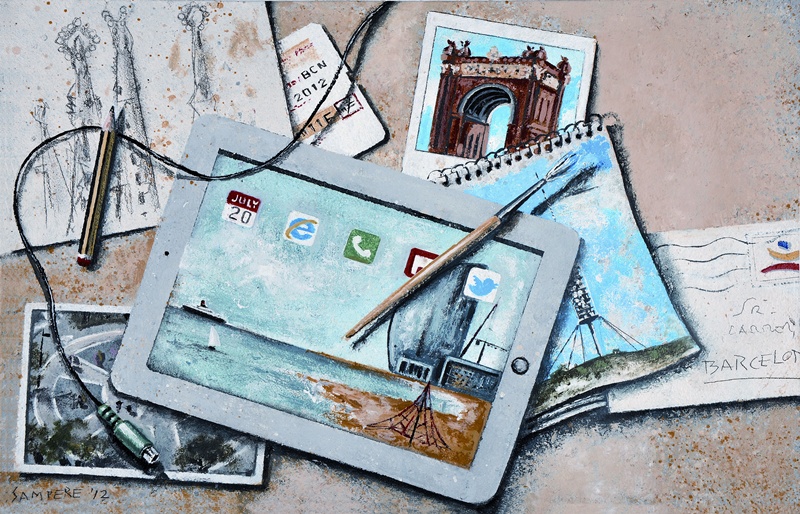“Within our mean wood / reverberate men and cities.” (Carles Riba)
“Thus have cities been made: / built up slowly / with stones that yesterday were human lives: loves, sufferings that no one recalls.” (Narcís Comadira)
Barcelona has not been left on the sidelines of the globalisation process. It is a welcoming city that opens itself up to outsiders and this means that ripples reach us from everywhere. However, it is also true that Europe is no longer the centre of the world. The geopolitical centre is shifting towards Asia. The Mediterranean, the cradle of Western civilization, could soon be downgraded to a peripheral status on the world map. Barcelona is a city that has grown because of the impetus given by big one-off events (the Universal Exposition, the Olympic Games, the Universal Forum of Cultures) and the roll-out of large-scale urban development projects (the Eixample, the Vila Olímpica, the 22@ business district, etc). Now that the city is developed, it is still not immune to the economic crisis and it needs to come up with a new productive model to make it sustainable. Tourism still brings in a lot of revenue, but it will not drive the new productive model that must ensure us a place on the cognitive capitalism map. We live in a time of unrest. The world we knew is dying, before a new world is born. The crisis is not a transient phenomenon. It is more like a systemic overhaul and it will demand the continued efforts of everyone.
Barcelona Metròpolis has always revolved around a central dossier, creating in-depth documentation of an aspect of life in the city. In this new stage, the central theme will be Barcelona’s transformation. In moments of crisis, one must use different lenses to look at problems with a historical perspective and a vision of the future. Barcelona is a capital undergoing transformation. From now on, mapping, projecting, debating, illustrating and documenting Barcelona’s changing place in the world will be the purpose of this magazine. And we shall do so with eyes that take in the past, help us to describe the present and test out different paths as we look to the future. The great enchantress needs to redefine herself. It is time to sit on the therapist’s couch or get an appointment with a life coach. We have asked some writers to conduct an exercise in prosopopoeia, giving Barcelona a dramatic monologue about her hopes, fears, traumas and fantasies. In each of these six soliloquies or dialogues with her therapist, Barcelona lies on the couch to explain what the matter is with her (with us) and elucidate where we come from, where we are and where we’re going. At the end of each monologue, the authors themselves put themselves in the shoes of a life coach, suggesting new challenges and attitudes with which to move forward.
Historian Enric Vila explores the Barcelona that measures itself against other neighbouring cities with a mixture of pride and envy. Xavier Theros gets Barcelona to speak from her architectural heritage. Anna Punsoda gives a voice to the city that sees itself from a philosophical angle. Jaume Radigales gets the music-loving city to speak. Àlex Gutiérrez gives voice to the city from the perspective of press journalism, a sector threatened right at a time when titles in Catalan are proliferating. We end the dossier with an exploration of the linguistic reality of Barcelona, ever more multilingual but also polarized between Catalan and Spanish. The choice is fragmented, but it is enough to give us an idea of the symptoms and the acute situation we are currently experiencing.
Note
“Great enchantress”: is a translation of the Catalan “gran encisera”, the famous and oft-quoted epithet that the poet Joan Maragall dedicated to the city in his New ode to Barcelona, dated 1909.




